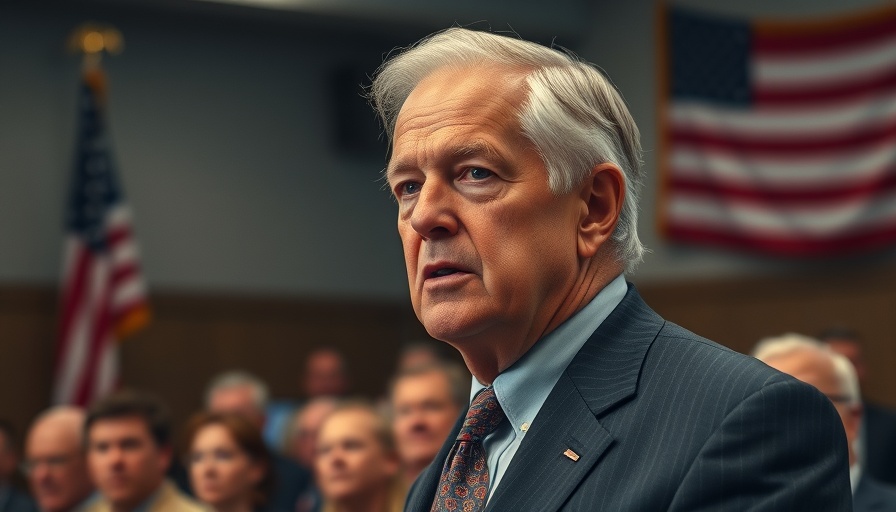
Understanding the Shift: Vaccine Policy Under RFK Jr.
Robert F. Kennedy Jr. has made headlines not just for his well-documented skepticism about vaccines prior to his political career, but also for the changes he has instituted as the U.S. Secretary of Health and Human Services. As audiences look to comprehend the implications of these shifts, it is essential to recognize the potential risks and benefits they pose to public health.
Historical Context: A Background on Vaccine Policy in America
The issue of vaccine access has a complex history in the United States. Vaccination policies have traditionally aimed to safeguard public health by ensuring widespread access to immunizations against diseases. However, Kennedy's controversial views have challenged this norm, leading many to question whether his policies will enhance or inhibit access to these critical health resources.
The Direct Impact of Policy Changes on Vaccine Accessibility
Since taking office, Kennedy has stated that he will not impose restrictions on vaccines. However, several healthcare experts argue that his administrative modifications may unknowingly restrict access to vaccines, especially for vulnerable populations. This is vital since vaccination is a cornerstone of preventive healthcare impacting communities across socioeconomic lines.
Public Sentiment: What the Shift Means for Consumers
The changes initiated by the Biden administration have been met with mixed responses. Some applaud the intent to reassess and potentially revamp vaccine programs. In contrast, others express concern over the growing anti-vaccine sentiment, fearing it could reignite misinformation campaigns undermining public trust. Therefore, understanding consumer sentiment is crucial for CEOs and marketing professionals who must navigate these evolving dynamics.
Insights from Health Experts: Evaluating the Risks
Leading health experts echo a remarkable concern that the changes might dilute the effectiveness of childhood vaccination programs, emphasizing the importance of maintaining robust immunization rates. The American Academy of Pediatrics has warned that any setback could lead to outbreaks of preventable diseases, creating significant strains on public health systems.
Future Predictions: Conjectures on Vaccine Policy Trends
In the months to come, the landscape of vaccine policy may reveal evolving patterns shaped by Kennedy’s decisions. As COVID-19 has highlighted the dependence on vaccination for public health, we may see increasing public discourse on vaccine mandates and access, which could significantly affect the business strategies of healthcare providers.
Actionable Insights for Business Leaders
For business leaders and marketing managers in the health tech industry, these developments herald the necessity of adaptive strategies. Understanding how changing policies impact consumer trust will be vital for engaging with clients effectively. Equally, professionals would benefit from harnessing data analytics to forecast potential market trends arising from these shifts.
Conclusion: Taking Charge of the Narrative
As we witness a significant political figure at the helm of health policy in America, understanding the implications of RFK Jr.'s vaccine policies is critical. Leaders within the health and marketing sectors must engage proactively, ensuring they are informed of public sentiment while adapting to changes that may affect their operations.
In light of these changes and potential consequences, it’s essential for professionals in tech and marketing to remain vigilant. Engaging with public health discussions and staying updated on policy changes can equip you with the insights necessary to navigate this complex landscape. Stay informed, be proactive, and guide your teams in making decisions that align with emerging public health strategies.
 Add Row
Add Row  Add
Add 




Write A Comment